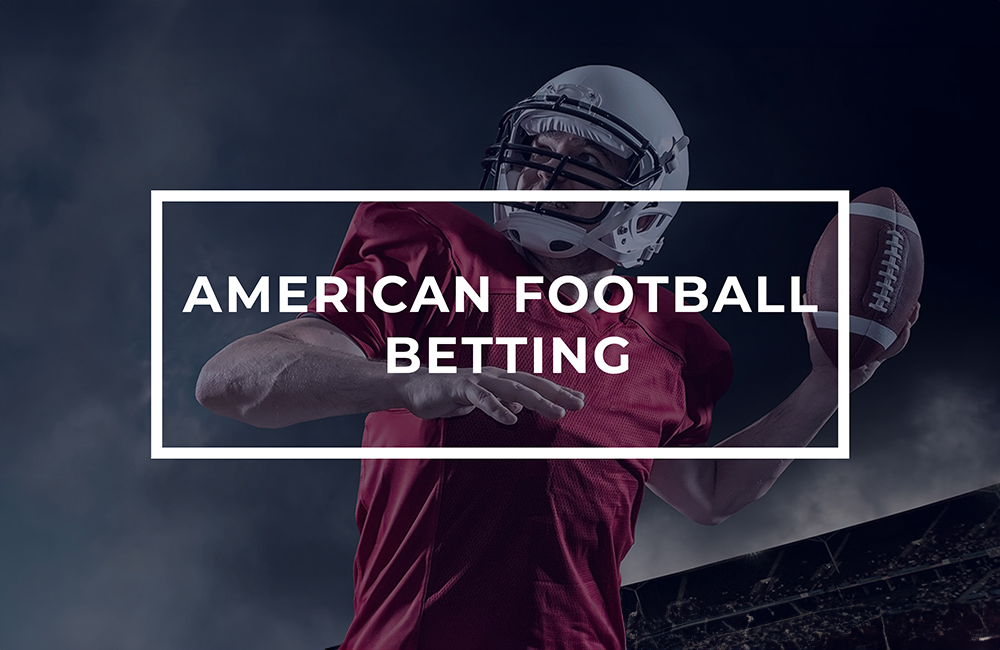Betting on the NFL (National Football League) is one of the most popular forms of sports wagering in the United States, offering a wide variety of betting markets and strategies. The complexity of American football, combined with the popularity of the sport, makes NFL betting both challenging and potentially profitable. This guide will provide you with everything you need to know to get started and succeed in betting on the NFL.
1. Understanding the Basics of NFL Betting
1.1 What Is NFL Betting?
NFL betting involves placing a wager on the outcome of an NFL game or specific events within the game. The objective is to predict the outcome correctly to win money. The NFL is the most-watched sports league in the United States, and betting on its games has become an integral part of the fan experience.
NFL betting markets range from simple bets like predicting the game winner to more complex wagers involving point spreads, totals, and player performances. Understanding the rules of the game, team strategies, and player statistics is essential for making informed bets.
1.2 How Odds Work
Odds are a fundamental aspect of betting, representing the probability of a particular outcome and determining potential winnings. Understanding how odds work is crucial for making informed bets.
- Decimal Odds: Common in Europe and Canada, decimal odds are straightforward. For example, if the odds are 2.50 and you bet $10, your total payout would be $25 ($10 x 2.50), which includes your original stake.
- Fractional Odds: Common in the UK, fractional odds are shown as fractions, such as 3/1. This means for every $1 you bet, you could win $3 in profit.
- American Odds: Primarily used in the United States, American odds can be positive (e.g., +200) or negative (e.g., -150). Positive odds indicate how much you would win on a $100 bet, while negative odds show how much you need to bet to win $100.
1.3 Types of Bets
There are several types of bets you can place on NFL games, each offering different levels of risk and reward:
- Moneyline: The most straightforward bet, where you wager on which team will win the game. Moneyline odds reflect the relative strength of each team, with favorites offering lower returns and underdogs offering higher returns.
- Point Spread: The point spread is a way to level the playing field between two teams of differing strengths. The favorite must win by a certain number of points (the spread) for the bet to be successful, while the underdog must either win outright or lose by less than the spread.
- Totals (Over/Under): This bet involves wagering on whether the total number of points scored by both teams will be over or under a certain number set by the bookmaker. Totals bets are influenced by the teams’ offensive and defensive capabilities.
- Parlays: A parlay bet combines multiple bets into one wager, with all selections needing to win for the bet to be successful. Parlays offer higher payouts but come with increased risk, as more outcomes must be correctly predicted.
- Teasers: Similar to parlays, teasers allow you to adjust the point spread or totals in your favor, increasing your chances of winning but reducing the overall payout.
- Prop Bets: These are bets on specific occurrences within a game, such as a player scoring a touchdown, the number of passing yards a quarterback will throw, or which team will score first. Prop bets can be fun and offer opportunities to profit from specialized knowledge.
- Futures: Futures bets involve wagering on outcomes that will be determined at the end of the season, such as which team will win the Super Bowl or which player will win the MVP award. Futures require a long-term commitment and a deep understanding of the league.
2. Advanced Betting Markets and Strategies
2.1 In-Play Betting
In-play or live betting allows you to place bets during the game, with odds fluctuating based on the action. This type of betting is particularly popular in the NFL, where the momentum can shift rapidly due to turnovers, big plays, or injuries.
- NFL In-Play Betting: In-play betting in the NFL offers the chance to capitalize on shifts in momentum. For example, if a team falls behind early but you believe they have the ability to come back, you might bet on them to win the game at improved odds.
- Strategies: A common strategy is to watch the first quarter of a game to get a sense of the teams’ strategies and how they match up against each other before placing a bet. Another strategy is to bet on the second-half spread, particularly if you believe one team is likely to adjust their game plan and perform better in the second half.
2.2 Point Spread Betting
Point spread betting is one of the most popular forms of NFL wagering, offering a balanced way to bet on games with unevenly matched teams.
- Understanding the Spread: The point spread is set by the bookmaker to create a more even betting field. For example, if the spread is -7.5 for a team, they must win by 8 points or more for your bet to win. Conversely, if you bet on the underdog at +7.5, they must either win the game outright or lose by 7 points or fewer.
- Key Numbers: In NFL betting, certain margins of victory (such as 3, 7, 10 points) are more common due to the scoring system (touchdowns, field goals). Understanding these key numbers can help you make better decisions when betting on the spread, as games often end with these point differentials.
- Betting Against the Public: Sometimes, betting against the public, especially when the majority is backing the favorite, can be a profitable strategy. This is because bookmakers might adjust the spread to balance the betting action, potentially offering value on the underdog.
2.3 Totals (Over/Under) Betting
Totals betting involves wagering on whether the total number of points scored in a game will be over or under a set number. This market is heavily influenced by the offensive and defensive capabilities of the teams involved.
- Analyzing Offenses and Defenses: To bet on totals effectively, you need to understand the strengths and weaknesses of both teams’ offenses and defenses. High-powered offenses and weak defenses often lead to higher-scoring games, while strong defenses and conservative offenses might result in lower scores.
- Weather Conditions: Weather can significantly impact totals betting, particularly in outdoor stadiums. Wind, rain, or snow can make it harder for offenses to score, leading to lower-scoring games. Always check the weather forecast before placing a totals bet.
- Pace of Play: The pace at which teams play—how quickly they run plays and how often they pass versus run—can also affect the total score. Teams that play at a fast pace and pass frequently are more likely to contribute to higher totals.
2.4 Prop Bets and Player Performance
Prop bets allow you to focus on specific players or events within a game, offering a wide range of betting opportunities.
- Player Props: These bets involve wagering on a player’s performance, such as the number of passing yards, rushing yards, or touchdowns they will accumulate. Player props require a deep understanding of individual players’ roles, matchups, and recent form.
- Team Props: Team props might involve betting on which team will score first, the total number of sacks, or whether a team will convert a fourth down. These bets can be profitable if you have a strong understanding of team tendencies and matchups.
- Novelty Props: Especially popular during events like the Super Bowl, novelty props include bets on things like the length of the national anthem, the color of the Gatorade poured on the winning coach, or whether a specific commercial will air first. These bets are more for entertainment than serious betting but can add fun to the viewing experience.
2.5 Futures Betting
Futures betting involves wagering on outcomes that will be determined at the end of the season. This requires a long-term perspective and a deep understanding of the league.
- Super Bowl Winner: Betting on which team will win the Super Bowl is one of the most popular futures bets. This requires analyzing team rosters, schedules, and potential playoff matchups throughout the season.
- MVP and Other Awards: Futures markets are also available for individual awards like MVP, Offensive Rookie of the Year, or Defensive Player of the Year. These bets often hinge on a player’s performance over the entire season and their impact on their team’s success.
- Division and Conference Winners: You can also bet on which teams will win their division or conference. These markets are often less volatile than betting on the Super Bowl winner and can offer value if you identify a team that might overperform expectations.
3. Key Factors to Consider Before Placing a Bet
3.1 Team Form and Recent Performance
Understanding a team’s recent form and performance is crucial for making informed bets in the NFL.
- Injuries: Injuries can significantly impact a team’s performance, particularly if key players like the quarterback, star receiver, or defensive leader are out. Always check the injury report before placing a bet.
- Recent Matchups: Analyze how a team has performed in their recent games, especially against similar opponents. A team’s ability to perform against strong defenses or exploit weak secondaries can be key indicators of how they will perform in upcoming games.
- Trends: Look for trends in a team’s performance, such as their ability to cover the spread, their scoring patterns in the first half versus the second half, or their performance in specific conditions (e.g., home vs. away, on turf vs. grass).
3.2 Matchups and Game Plans
NFL games are often decided by how well teams match up against each other and their respective game plans.
- Offensive vs. Defensive Matchups: Consider how a team’s offense matches up against the opposing defense. For example, a strong running game might exploit a weak run defense, while a potent passing attack could struggle against a team with a strong secondary.
- Coaching and Strategy: Coaching decisions and game plans play a significant role in NFL outcomes. Understanding a coach’s tendencies, such as whether they are aggressive on fourth downs or conservative in clock management, can give you an edge in betting.
- Home Field Advantage: Home field advantage is a significant factor in the NFL, with teams often performing better at home due to the support of the crowd, familiarity with the playing surface, and reduced travel fatigue. However, not all teams benefit equally, so consider each team’s home and away records.
3.3 Weather and Environmental Factors
Weather and environmental conditions can have a significant impact on NFL games and betting outcomes.
- Temperature and Wind: Cold weather, especially in northern stadiums, can affect a team’s passing game, while strong winds can impact both the passing and kicking games. Teams from warmer climates might struggle in cold conditions, particularly later in the season.
- Rain and Snow: Wet conditions can lead to more turnovers and a greater emphasis on the running game. Teams with strong running backs and offensive lines might benefit in these conditions, while high-flying passing attacks could be stifled.
- Altitude and Travel: Teams playing at higher altitudes, such as in Denver, might have an advantage due to the thin air, which can tire out visiting teams more quickly. Additionally, long travel distances, especially for teams traveling across time zones, can impact performance.
3.4 Statistical Analysis and Advanced Metrics
Using advanced metrics and statistical analysis can provide deeper insights into team and player performance, helping you make more informed bets.
- DVOA (Defense-adjusted Value Over Average): This advanced metric measures a team’s efficiency by comparing their performance to the league average, adjusted for the quality of opponents. DVOA can be a valuable tool for identifying teams that are performing better or worse than their record suggests.
- EPA (Expected Points Added): EPA measures the value of each play in terms of how it affects the team’s expected points. This metric helps to assess the efficiency of offenses and defenses and can be used to compare teams or evaluate the impact of specific players.
- PFF Grades (Pro Football Focus): PFF provides player grades and advanced statistics that can give you a detailed view of individual matchups. For example, understanding how well a team’s offensive line matches up against the opponent’s pass rush can inform bets on total sacks or the effectiveness of the passing game.




